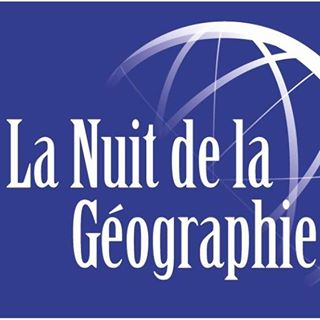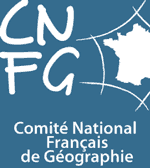

 EUGEO supports the initiative of the 2018 Night of Geography/Nuit de la Géographie, promoted by the Comité National Français de Géographie, and invites all its members to disseminate information and share news on the events that will take place in their respective countries.
EUGEO supports the initiative of the 2018 Night of Geography/Nuit de la Géographie, promoted by the Comité National Français de Géographie, and invites all its members to disseminate information and share news on the events that will take place in their respective countries.
MAP OF GEONIGHT EVENTS
(click on the map to see the real openstreetmap; Credits : Association Géomactif du Master GAEUR (Géomatique appliquée aux études urbaines et aux risques)-Université de Cergy Pontoise)
Voir en plein écran
This page is dedicated to collect links to informative pages as there will be communicated.
This is the link to the FB page of the first edition: https://www.facebook.com/laNuitdelaGeographie/
Info for the 2018 initiative: http://cnfg.fr/index.php?option=com_content&view=article&id=449&Itemid=404
Info about the 2017 edition: http://cnfg.fr/index.php?option=com_content&view=article&id=415&Itemid=403
The website for Italy (created and constantly updated by AGEI): http://www.ageiweb.it/nottedellageografia/
The webgpage for Hungary: https://www.foldrajzitarsasag.hu/rendezvenyek/night-of-geography-2018
For more info: geonight@eugeo.eu
Hereafter an explanation of the “spirit” of the event (by the CNFG):
La Nuit de la Géographie / The Night of Geography
In 2017, the French National Geographical Committee initiated the first « Night of Geography », in Paris and a dozen other French cities. It was highly successful, with a great diversity of public and organizers, and hundreds of people attending the events.
The second edition will take place on Friday, April 6th, 2018, and it will expand to the European scale.
General goals
This event aims to put forward geography and geographers, give the greater public a chance to know them better, make geographical research more accessible. The proposed events should, whenever possible, be free and open to all public.
A variety of events
The events should take place in the evening and during the night, so as to welcome various kinds of public, not only academics. Organizers are invited to put forward unusual, maybe playful aspects of geographical sciences.
Some of the events should take place inside a building, so as to foster exchanges and togetherness, with workshops that will be quite varied, from the more academic (conferences, exhibitions, round tables…) to the more playful (buffets, multi-sensorial geographical games, performances…). Organizers can present jobs linked to geographical education, GIS software or new technologies, dreams or crazy geographical projects…
Other events will take place outside : small fieldtrips and urban walks can be organized, with a variety of purposes : perception analysis, benchmarking, drawing and mapping, interviews, photography… during the night, geography changes!
General organization
The French National Geographical Committee has initiated and promotes the Night of Geography at the European scale, but the spirit is that all events should be organized in a decentralized manner, from a logistic and a financiary standpoint.
The goal is to put forward the creativity of local initiative and the variety of persons, institutions, associations, that can feel concerned and would like to participate.
There is no numerical goal to be reached. Local organizers can set up just a small geographical café or a short thematic walk through the city, or put together a larger event involving many scientific interventions.
A small international organizing committee is set up to coordinate some actions, give pieces of advice, communicate about the events; but mostly the job is done by the local organizers, in order to keep things simple!
Costs
Budgets can be maintained at a low level, since the spirit of the Night of Geography relies on openness and flexibility. Locations can be outside, in cultural or academic institutions, or in cafés, in places organizers do not necessarily have to rent. Technical material can be lent by research labs or universities, or sponsors. Students and associations can volunteer to help with logistics and assistance to the public. Communication made via social media costs nothing…
However, possible costs such as security issues will be paid by the local organizers, so we suggest you mobilize research labs and possible sponsors, or ask for public subsidies, which would in turn give more visibility to the event. The French Committee cannot fund the events.
It should be highlighted that these costs entail also strong benefits: people get to change their ideas on what is geography and what geographers do, more people can get involved (more students and more professional stakeholders…), and let’s not forget the pleasure we have in spending time together and live a plural and amazing geography!


 EUGEO supports the initiative of the 2018 Night of Geography/Nuit de la Géographie, promoted by the Comité National Français de Géographie, and invites all its members to disseminate information and share news on the events that will take place in their respective countries.
EUGEO supports the initiative of the 2018 Night of Geography/Nuit de la Géographie, promoted by the Comité National Français de Géographie, and invites all its members to disseminate information and share news on the events that will take place in their respective countries.